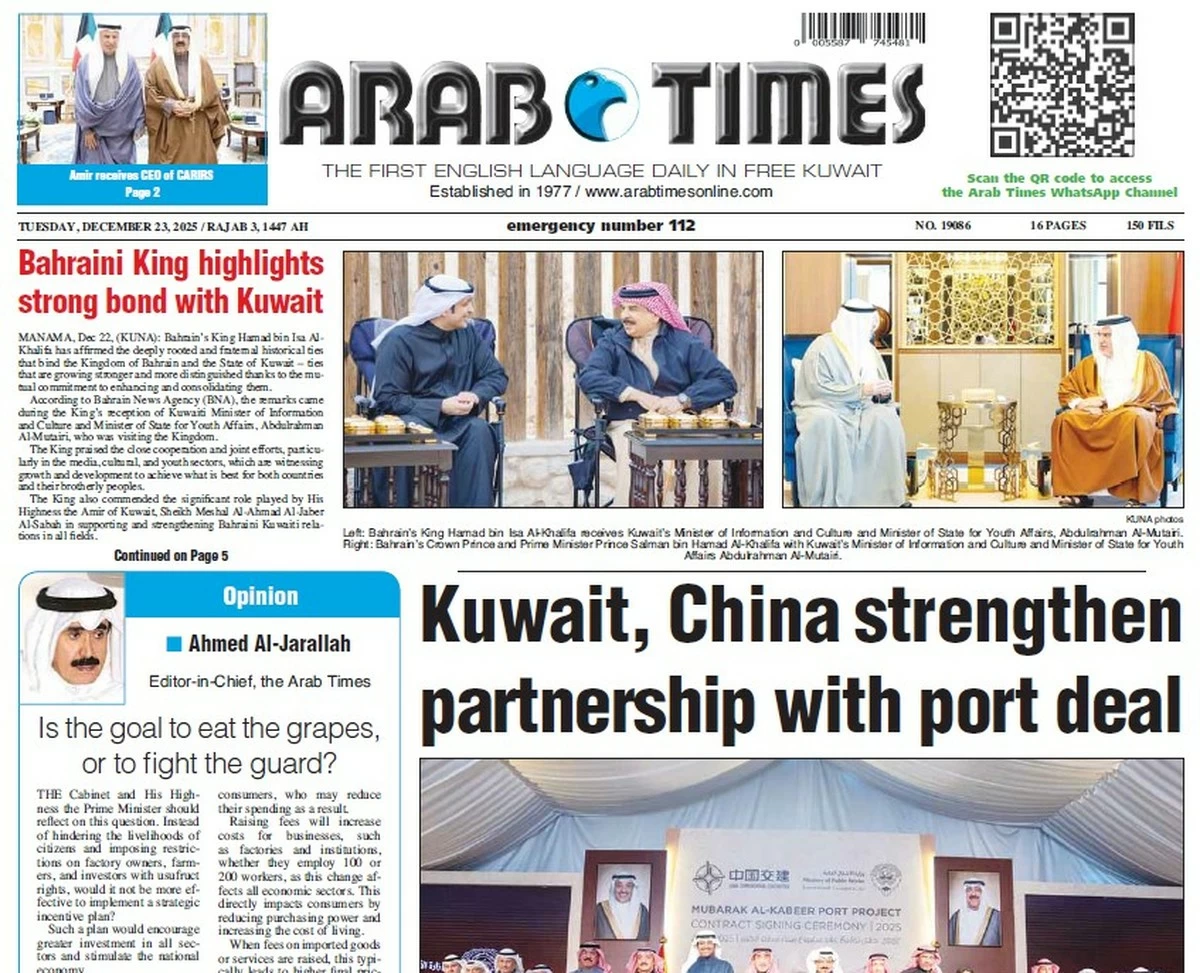11/08/2024
11/08/2024
SOCIAL media is viewed differently in the West compared to some Gulf countries in the Arab world.
In democratic countries, there is no fear among individuals who post on social media platforms. Instead, the focus is on discussing and evaluating the content, whether it is accurate or not. In contrast, those who post anonymously or under pseudonyms are often disregarded and considered trivial.

In some Gulf countries, social media users, particularly those operating fake accounts, are viewed as a serious threat to the state. Consequently, they are often prosecuted and, if caught, may face long prison sentences. In these cases, the focus is less on the content of what was said or published, whether it is true or false.
Nonetheless, the equation is simple in this regard. If this person was “sound”, he would publish under his real name instead of hiding behind a fake identity.
That is why I am surprised by these campaigns against fake social media users. They often gain notoriety overnight, because the prosecutions make them heroes. They have defenders, and the police stations, the public prosecution and the courts are preoccupied with them. The situation is different in the West and democratic countries, as there is no principle of “take him and cuff him”.
There is no doubt that this practice comes with a high price, because it occupies several official institutions and costs them a lot of money and time. Moreover, it increases the fame of the owner of the fake account, who is considered a hero by “crazy” people like him. They then imitate him, because fame is very tempting.
I aim to simplify the idea so that both the public and decision-makers understand that social media has positive aspects. It is not just a platform for praise but also a tool for raising awareness about problems that need to be addressed, and for discussing issues that benefit society, the people, and the state.
In Kuwait, some fake accounts gained notoriety. They were run by individuals who exploited the negative conditions that existed prior to the measures taken by His Highness the Amir Sheikh Mishal Al-Ahmad Al-Sabah. These measures included suspending the National Assembly and failing to implement certain constitutional articles.
Prior to that, any suggestion about amending the Constitution was regarded by self-interested people as “blasphemy”, and a violation of democracy. They argued that demanding justice for Kuwaitis by lifting support and raising the salaries of low-income earners was an attack on the citizens’ pockets.
Amidst all this, the owners of fake accounts were inciting people, hoping to influence a parliamentarian who had a vested interest to capitalize on the situation.
In reality, officials should not be troubled by fake names. However, when someone openly declares their identity, what they publish should be examined. If the content is accurate, the issue should be addressed or discussed.
Frankly, following the measures taken by His Highness the Amir Sheikh Mishal Al-Ahmad, even traffic on the roads was organized, and the annoyed noises subsided or disappeared. Therefore, the Council of Ministers must proceed with its program in the way His Highness envisions, without being distracted by trivial matters.
All ministers must give great importance to what the newspapers publish, as they today represent the voice of the people after the suspension of the National Assembly.
Poison is feared by all, and honey is welcomed by all. Similarly, people want to eat grapes, not kill the guard of the vineyard.
By Ahmed Al-Jarallah
Editor-in-Chief, the Arab Times


